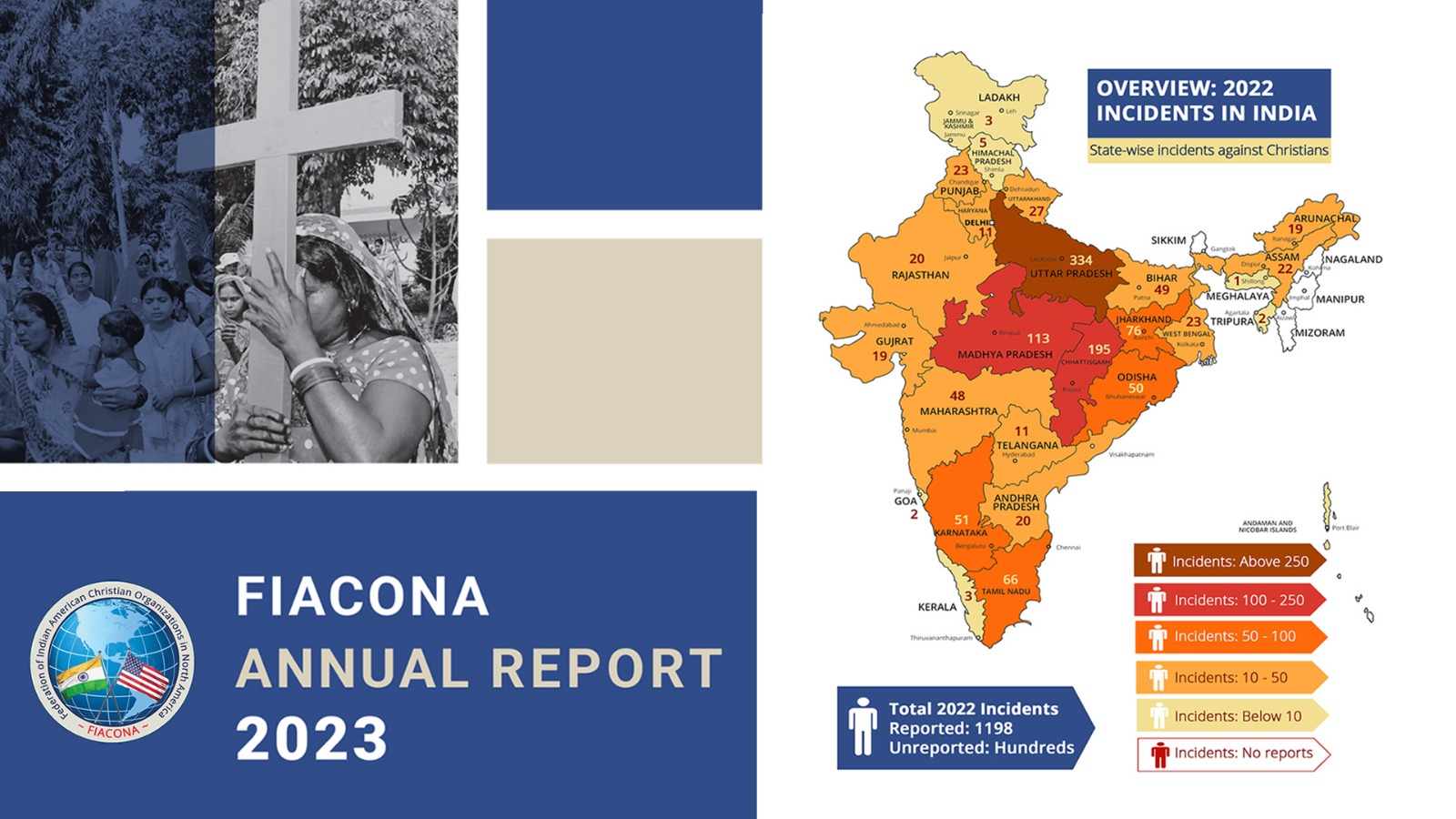Tribal Christians protest in poll-bound Indian state
Tribal Christians in a poll-bound central Indian state have protested against a call to de-list them from India’s affirmative action program and deny them reservation benefits. Hundreds of tribal Christians on June 10 marched through Raipur, Chhattisgarh state capital, six months ahead of the state elections. They shouted slogans against some Hindu groups' demand to remove tribal Christians from the list of people receiving reservation benefits in jobs and educational institutions. Tribal groups, listed as Scheduled tribes, receive such benefits as part of affirmative action to bring them social mainstream. Certain Hindu groups say tribal people who have become Christians should not be given such benefits as they have left traditional tribal customs and faith. Anil Kispota, a member of the organizing team, told the media that their “ancestors were tribal, and they continue to remain tribals.” Clad in their traditional attire, they gathered at the Science College ground under the banner of the Chhattisgarh Christian Adivasi Mahasabha (Chhattisgarh Christian tribal forum). In April this year, the Janjati Suraksha Manch (tribal protection forum) organized a rally in Raipur, demanding that tribal people, “who do not follow the traditions and customs, should be removed from the benefits meant for the Scheduled Tribe (ST) community." Ram Bhagat, convenor of the forum and a
Press Release: FIACONA Launched 2023 Annual Report
PRESS RELEASE Washington DC. January 30, The Federation of Indian American Christian Organizations launched its 2023 Annual Report on India on January 30 at an event held at Washington Hilton, ahead of the IRF Summit. The 2023 Report is unique in several aspects. For the first time, the Report calls for accountability from the government of India for its institutional failures to safeguard the lives and properties of Christians. The Report has recorded 1198 confirmed and verified incidents of violence against the Christian community across India. All these attacks were carried out by groups affiliated with or controlled by the Hindu nationalist party, the BJP, and its parent organization, the RSS. Most of these attacks took place in states with some Anti-Conversion Laws. The attackers used perceived conversion, restricted by those laws, as a cover to attack the prayer meetings and churches. The police had joined the attackers in many instances. The Report estimates around 100 million US Dollars as a net loss caused by the violence against Christians in these 1198 incidents. FIACONA calls on the government of India to form an independent committee to calculate the financial damage caused to each individual family affected. FIACONA is asking the US Congress to pass legislation
‘We support free press,’ says US on India blocking BBC documentary
The Centre had directed YouTube and Twitter to remove links to the documentary, which revisits Narendra Modi’s alleged role in the 2002 Gujarat riots. ‘We support free press,’ says US on India blocking BBC documentary US Department of State spokesperson Ned Price. | Screengrab via @StateDeptSpox / Twitter The United States Department of State on Wednesday said that it continues to highlight the importance of free press around the world when asked to share its view on the BBC documentary on the 2002 Gujarat riots. The documentary, India: The Modi Question, alleged that Prime Minister Narendra Modi – then the chief minister of Gujarat – had prevented the police from acting to prevent the violence during the 2002 Gujarat riots. The first part of the documentary, released on January 17, alleges that a team sent by the British government had found that Modi was “directly responsible for a climate of impunity” that led to the violence against Muslims. On January 21, Centre had directed YouTube and Twitter to remove links to the BBC’s documentary by invoking the emergency blocking orders under the Information Technology Rules of 2021. On Wednesday, the US State Department spokesperson Ned Price was asked whether banning of the BBC documentary was a
Journalism faces great challenges from inside and outside: Dayal
New Delhi, Nov 3, 2022: Journalism now faces great challenges from inside the profession and outside, says veteran journalist John Dayal, after he was selected for a prestigious award by the national association of Catholic journalists in India. The Indian Catholic Press Association (ICPA) has also chosen a grassroots Jesuit activist and a Holy Spirit nun, besides Dayal, for its annual awards this year. The award was announced November 2 by the association’s president Ignatius Gonsalves and secretary Capuchin Father Suresh Mathew. John Dayal, who is also a writer and human rights activist, was selected for the Louis Careno Award for Excellence in Journalism for his bold, continuous and consistent writing against communalism and fundamentalism gaining ground globally. The award citation hails Dayal as “a prophet of our times” who is among India’s foremost voices against human rights violations, particularly on the persecution of religious minorities. “He has been a member of several government bodies, including the National Integration Council, and holds senior roles in numerous non-government organizations and networks, including as co-founder and secretary general of the All India Christian Council, 1999-2014, national president of the 1919-founded all India Catholic Union between 2004 and 2008, and a member of Justice and Peace Commission of
Who benefits from keeping Dalits ‘Hindu’
The narrative of Muslims and Christians being casteless is more significant to India’s handling of caste than we assume. After years of it remaining confined to academic discussions, the prospect of Scheduled Caste status for Dalit Muslims and Christians suddenly feels real. The last month has seen much activity on the question. The Union government’s appointment of a commission under KG Balakrishnan on October 8 has received much press coverage. However, it is not well known that the government did not set up the commission of its own accord but after the Supreme Court asked it to respond to an ongoing case. On August 30, the Supreme Court had listed the case of M Ejaz Ali vs Union of India, combining a batch of public interest litigations from Muslim and Christian groups demanding Scheduled Caste status. Some of these petitions go as far back as 2004. Denial and opposition While the anticipation of Scheduled Caste status brings hope for the most marginalised Muslim and Christian communities as it will allow them to access reservations in educational institutions and government jobs, it is also met with denials and opposition from several spheres. Predictably, groups the like All India Muslim Personal Law Board, who have claimed to represent






